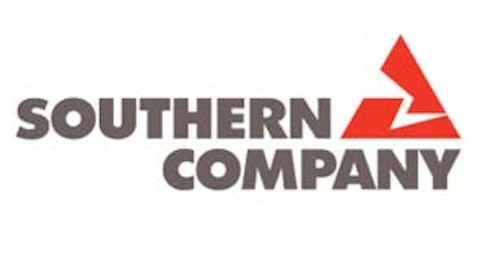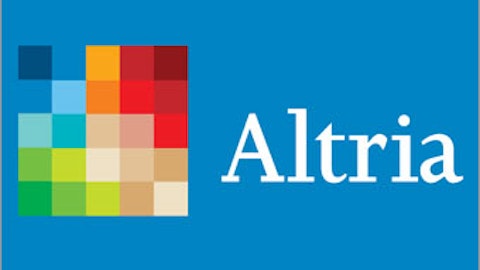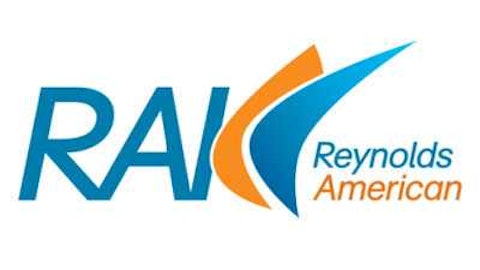
In addition, for big tobacco buying back stock has the added bonus of offsetting declining earnings due to falling tobacco sales.
But how useful and how effective is this method? I am skeptical of any company that issues debt in order to buy back stock, as most companies tend to pay too much for their shares while buying back.
The effectiveness of buybacks that are funded through debt can be worked out with a comparison between the company’s earnings yield and the after-tax cost of its borrowing.
The earnings yield per share is the total of ttm earnings per share and its dividend by the company’s share price. This figure shows investors the percentage of each dollar invested in the stock that was earned by the company.
The earnings yield can also be used to determine whether or not the company is over- or undervalued when compared to the prevailing interest rate, or risk free rate such as the 10-year Treasury. If the earnings yield is below the risk free rate, then the stock is overvalued.
So, here are the three different tobacco companies buying back stock with debt and the effectiveness of their buyback programs measured by the earnings yield.
The big daddy
There has been much fuss around Philip Morris International Inc. (NYSE:PM)’ newest, three-year $18 billion buyback plan, but how much did the company’s last buyback reward investors and should the company be borrowing to buy back stock again? The figures I use below are for the company’s 2011 buyback, which ended during 2012.
| Before Buyback | |
|---|---|
| Share price | $77.10 |
| EPS | $4.85 |
| Earnings Yield | 6.29% |
| After tax cost of borrowing | 3.75% |
| Number of outstanding shares | 1,762,000,000 |
| Planned buybacks | ($6 billion spent over two years at an average price of $83 per share) 72,289,000 |
Philip Morris International Inc. (NYSE:PM)’ earnings yield is 6.29% and its cost of borrowing is about half that, indicating the the company’s buyback will be beneficial for investors.
During the two years when the buyback took place, Philip Morris International Inc. (NYSE:PM)’ earnings expanded from $8.6 billion to $8.8 billion, and the number of shares in issue fell from 1.76 billion to 1.69 billion.
| After Buyback | |
|---|---|
| Earnings after borrowing cost | $8,800,000,000 |
| Shares outstanding | 1,692,000,000 |
| EPS | $5.17 |
Rising net income and a reduced number of shares in issue pushed Philip Morris International Inc. (NYSE:PM)’ earnings-per-share up 6.6%. However, without the buyback, earnings-per-share would have only grown to $4.99, or 2.8%, which indicates that the buyback more than doubled the company’s EPS growth – a good investment and return for investors.
The mid-sized player
Reynolds American, Inc. (NYSE:RAI) has a $2.5 billion two-and-a-half year buyback program currently in place, funded through debt.
| Before Buyback | |
|---|---|
| Share price | $40.42 |
| EPS | $2.40 |
| Earnings Yield | 5.79% |
| After tax cost of borrowing | 4.05% |
| Number of outstanding shares | 585,380,000 |
Reynolds American, Inc. (NYSE:RAI) is paying slightly more to borrow than Philip Morris International Inc. (NYSE:PM), and the company also has a much lower earnings yield. That said, the company’s earnings yield is still 1.74% above the rate that it is paying to borrow, indicating that the buyback will be beneficial for investors.
Reynolds American, Inc. (NYSE:RAI)’ income has been erratic over the past few years but on a CAGR basis, during the last four years the company’s income has expanded 10.2%. When the buyback began during 2011 the company had a net income of $1.406 billion; assuming 20% growth for the two-and-a-half year buyback period (to give the low end of the range) the company will be earning $1.686 billion when the buyback ends.
| After Buyback | |
|---|---|
| Earnings after borrowing cost | 1,650,000,000 |
| Shares outstanding | ($2.5 billion of stock brought back at an average price of $45)= 529,824,445 |
| EPS | $3.11 |
Using the above methodology, Reynolds American, Inc. (NYSE:RAI) will earn $1.65 billion in 2014 when the buyback ends in mid-2014 (started Nov 2011), or $3.11 per share – a gain of 29.6%; but without the buyback the company would only earn $2.84 per share – a gain of 18% from current levels.
The little guy
Lastly, let’s take a look at Lorillard Inc. (NYSE:LO), which is undertaking the smallest buyback in the group but has achieved some of the best returns from these buybacks during the past few years–will this continue?
Lorillard Inc. (NYSE:LO)’s most recent buyback program is worth $1 billion and was announced on March 8 this year.
| Before Buyback | |
|---|---|
| Share price | $42.25 |
| EPS | $2.69 |
| Earnings Yield | 4.9% |
| After tax cost of borrowing | 2% |
| Number of outstanding shares | 390,190,000 |
| Planned buybacks | $1 billion @ 23,668,669 |
Lorillard has issued a tranche of $500 million in debt to fund the first half of its buyback, and I believe that it will issue a further $500 million to finance the second part. Amazingly, Lorillard Inc. (NYSE:LO) is only paying an average of 2% to borrow this amount – lower than many governments around the world.
With an earnings yield of just under 5%, and such a low interest rate, Lorillard Inc. (NYSE:LO) will achieve a good return for investors.
| After Buyback | |
|---|---|
| Earnings after borrowing cost | $1,050,000,000 |
| Shares outstanding | 366,521,331 |
| EPS | $2.87 |
Lorillard Inc. (NYSE:LO)’s earrings have remained almost constant for the past few years, and assuming this trend continues, the company will earn $2.87 per share after the completion of its planned buyback.
On completion of its buyback, Lorillard Inc. (NYSE:LO) will have bought back 6% of its total number of shares in issue, driving up earnings-per-share by 7% assuming income remains constant, an impressive rate of growth and a good return for investors on the borrowed cash.
Conclusion
Overall, these three tobacco giants are all borrowing to buy back stock, but it would appear that their buybacks are actually achieving good returns for investors — despite the cost of borrowing.
However, the best buyback plan belongs to Lorillard, which has achieved the highest returns with the smallest amount of cash.
The article Earnings Yield and Evaluating Tobacco Buybacks Funded With Debt originally appeared on Fool.com and is written by Rupert Hargreaves.
Fool contributor Rupert Hargreaves has no position in any stocks mentioned. The Motley Fool owns shares of Philip Morris International. Rupert is a member of The Motley Fool Blog Network — entries represent the personal opinion of the blogger and are not formally edited.
Copyright © 1995 – 2013 The Motley Fool, LLC. All rights reserved. The Motley Fool has a disclosure policy.




